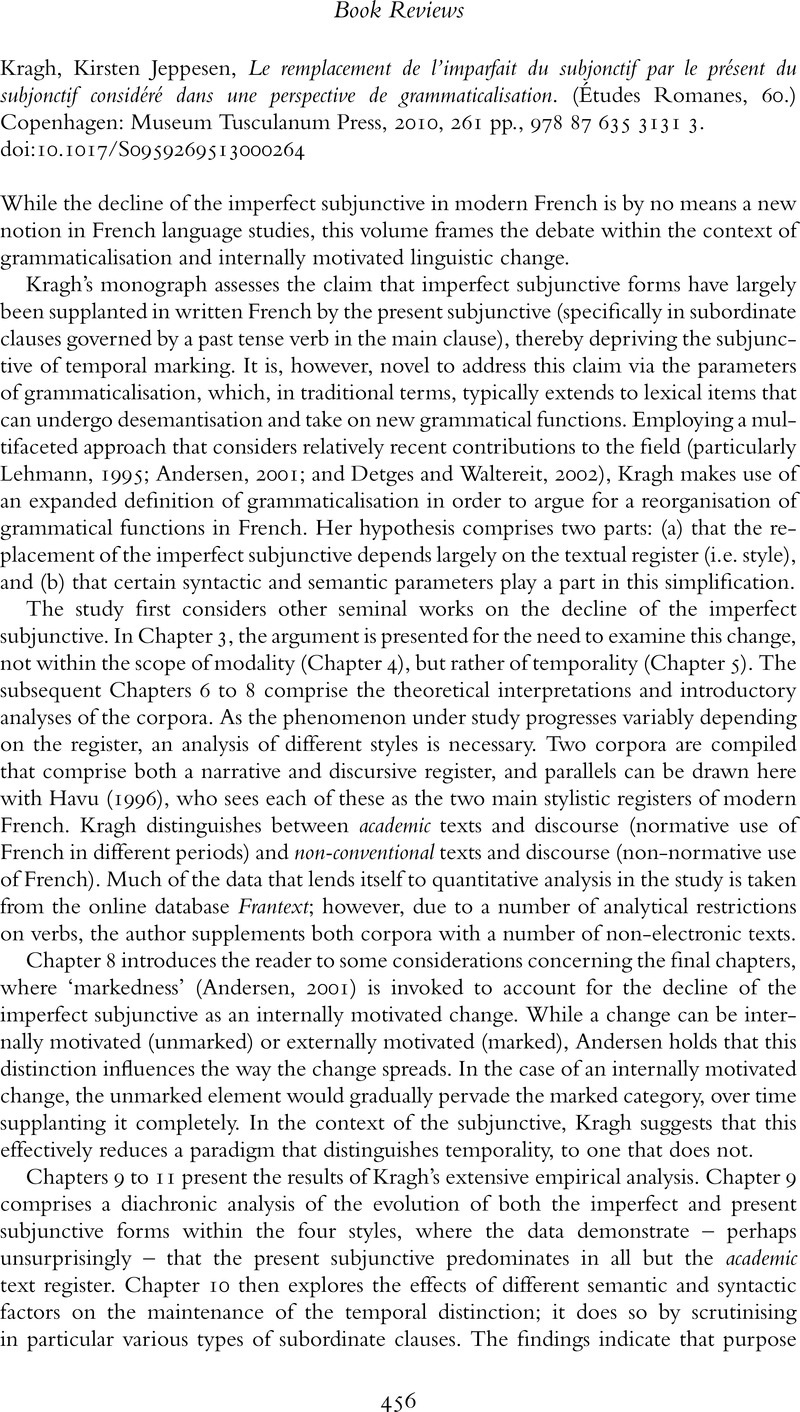No CrossRef data available.
Article contents
Kirsten Jeppesen Kragh, Le remplacement de l'imparfait du subjonctif par le présent du subjonctif considéré dans une perspective de grammaticalisation. (Études Romanes, 60.) Copenhagen: Museum Tusculanum Press, 2010, 261 pp., 978 87 635 3131 3.
Review products
Kirsten Jeppesen Kragh, Le remplacement de l'imparfait du subjonctif par le présent du subjonctif considéré dans une perspective de grammaticalisation. (Études Romanes, 60.) Copenhagen: Museum Tusculanum Press, 2010, 261 pp., 978 87 635 3131 3.
Published online by Cambridge University Press: 01 October 2013
Abstract
An abstract is not available for this content so a preview has been provided. Please use the Get access link above for information on how to access this content.

- Type
- Book Review
- Information
- Copyright
- Copyright © Cambridge University Press 2013
References
REFERENCES
Andersen, H. (2001). Markedness and the theory of linguistic change. In: Andersen, H. (ed.), Actualization: Linguistic Change in Progress. Amsterdam: Benjamins, pp. 21–58.CrossRefGoogle Scholar
Detges, U. and Waltereit, R. (2002). Grammaticalization vs. reanalysis: A semantic-pragmatic account of functional change in grammar. Zeitschrift für Sprachwissenschaft, 21.2: 151–195.CrossRefGoogle Scholar
Havu, E. (1996). De l'emploi du subjonctif passé. Helsinki: Akademia Scientiarum Fennica.Google Scholar


